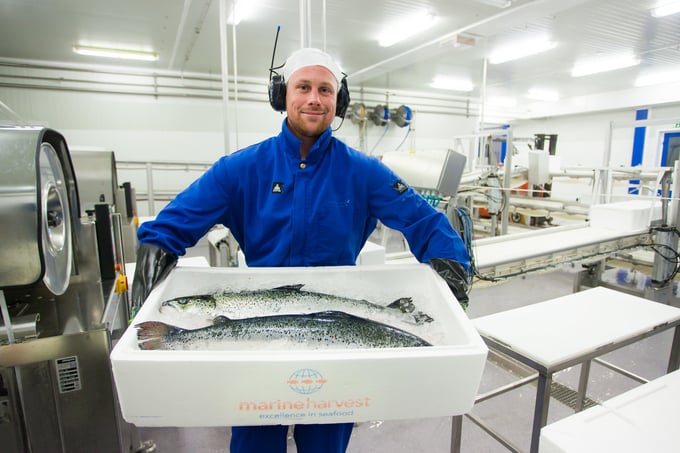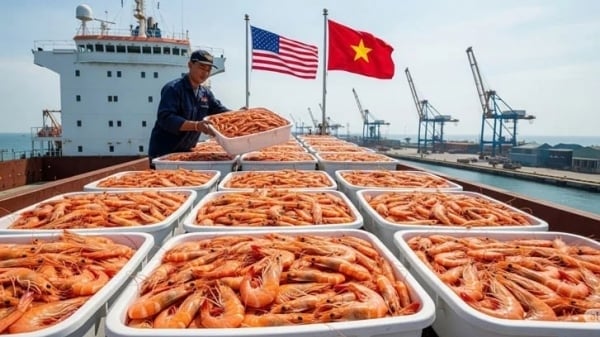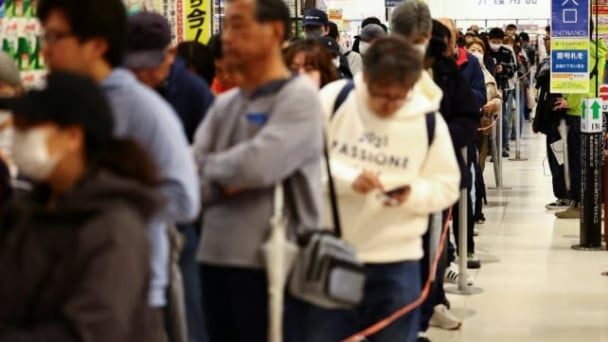June 17, 2025 | 12:11 GMT +7
June 17, 2025 | 12:11 GMT +7
Hotline: 0913.378.918
June 17, 2025 | 12:11 GMT +7
Hotline: 0913.378.918
The recent report from the Norwegian Seafood Council (NSC) for 2024 indicates that Norwegian seafood remains among the leaders in Vietnam’s imported seafood market, especially in categories like Norwegian salmon, brown crab, and king crab.
With strong recognition and increased availability of high-quality and sustainable seafood, Norwegian seafood remained the top choice for Vietnamese consumers seeking high-quality, responsibly sourced seafood options.

Vietnam is a vibrant and promising market for Norwegian seafood. Photo: NSC.
Norway is the leader among the top countries of origin for imported salmon to Vietnam, with an impressive 79% market share in annual imports totaling 24,000 tons. Despite a competitive landscape, Norway’s focus on premium quality, sustainability, and traceability has resonated strongly with Vietnamese consumers and businesses. The closest competitors fall behind significantly, with only a 10% and 8% share, respectively, reflecting Norway’s strong foothold in the salmon sector. Moreover, Norway’s frozen salmon products are widely consumed, with the demand for sushi toppings such as salmon belly driving further market penetration.
Similarly, Norway also leads in the king crab and brown crab segments. The total market for king crab in Vietnam is approximately 350 tons, with Norway capturing 54% of the market share in 2024. Additionally, Norway holds a 76% share in brown crab imports, underscoring the country’s leading position in the premium shellfish segment.
Through strengthening strategic collaborations with local partners, Norwegian seafood has become more accessible to Vietnamese consumers across retail and the food service sectors. Major Vietnamese retailers have embraced Norwegian seafood, reinforcing its presence in the market.
With a per capita seafood consumption of 40.9 kg annually, Vietnamese consumers now have enhanced access to Norway’s premium, sustainably sourced seafood products, reaching a diverse range of consumers nationwide. This collaboration enriches Vietnam’s seafood offerings with top-tier, responsibly sourced options that align with consumer demand.

Vietnam's position as Southeast Asia's fastest-growing market for Norwegian seafood. Photo: NSC.
Ms. Åshild Nakken, the Regional Director for Southeast Asia said: "Vietnam is a vibrant and promising market for Norwegian seafood, and we are excited to continue growing our partnerships here.
“Our dedication to quality, sustainability, and strong partnerships with local stakeholders has been fundamental to our success. We believe our collaborative efforts will positively support the growth of Vietnam’s imported seafood market, creating lasting benefits for both Vietnamese businesses and consumers alike”, Ms. Åshild Nakken said more.
The NSC’s emphasis on sustainable practices aligns with the values of Vietnamese consumers, 82.2% of whom prioritize sustainably sourced seafood. Norwegian Seafood’s commitment to transparency, traceability, and environmental responsibility positions it as a preferred choice in a market that increasingly values sustainability.
The trademark “Seafood from Norway” guarantees the quality and origin of Norwegian seafood products, reinforcing Norway's reputation as a trusted source of premium seafood in Vietnam. This internationally recognized trademark has helped establish a strong presence in the Vietnamese market, symbolizing Norway's commitment to high standards and sustainable sourcing.
Adding to this impact, football superstar Erling Haaland's position as Norway’s seafood ambassador has yielded remarkable results. Haaland’s global popularity has significantly boosted the visibility of Norwegian seafood in international markets, including Vietnam, where he resonates with young consumers and seafood enthusiasts alike. The synergy between the “Seafood from Norway” trademark and Haaland’s ambassadorship has played a key role in strengthening Norway’s standing as a leading provider of high-quality seafood.
End of October 2024, Norway recorded a 16% increase in seafood exports to Vietnam and an 18% rise in value compared to the previous year's period, totaling 60,900 tonnes worth 2.23 billion NOK (~201 million USD). These figures underscore Vietnam's position as Southeast Asia's fastest-growing market for Norwegian seafood.
These achievements and ambitious targets underscore the strong partnership between Vietnam and Norway. Through continuous efforts to enhance accessibility, Norway reaffirms its commitment to meeting the demand for premium seafood in Vietnam, paving the way for further growth and mutual benefits for both nations.
The Norwegian Seafood Council (NSC) collaborates with Norway’s fisheries and aquaculture industries to develop markets for Norwegian seafood through local market intelligence, market development, and reputational risk management. Headquartered in Tromsø, the NSC has representatives in 12 key international markets. The activities of the NSC are financed by the Norwegian seafood industry through a tariff on all Norwegian seafood exports. The NSC is a public company owned by Norway’s Ministry of Trade, Industry and Fisheries.
Translated by Hong Tham

(VAN) The political and cultural insulation of Japan’s beloved grain is falling apart, and experts warn the country’s relationship with the staple will have to adapt.

(VAN) Noting risks, report examines impacts of avian influenza, changing trade patterns since 2022, fish fraud, and shipping industry’s net-zero goals.

(VAN) Mr. Tran Quang Bao, General Director of the Forestry and Forest Protection Department, met and worked with the International Wood Products Association to promote cooperation in the field of timber trade.

(VAN) China's outbound shipments of rare earths in May jumped 23% on the month to their highest in a year, though Beijing's export curbs on some of the critical minerals halted some overseas sales.

(VAN) To sustain capital flow, administrative reform alone is not enough; what farmers truly need is an ecosystem where both government and businesses grow together in support.

(VAN) Vietnam and the United States are proactively working together, each in their own way, to ensure that every container of agricultural goods carries not just products, but also long-term trust and value.

(VAN) Stores have started selling rice from the government’s stockpile to feed demand for the staple.